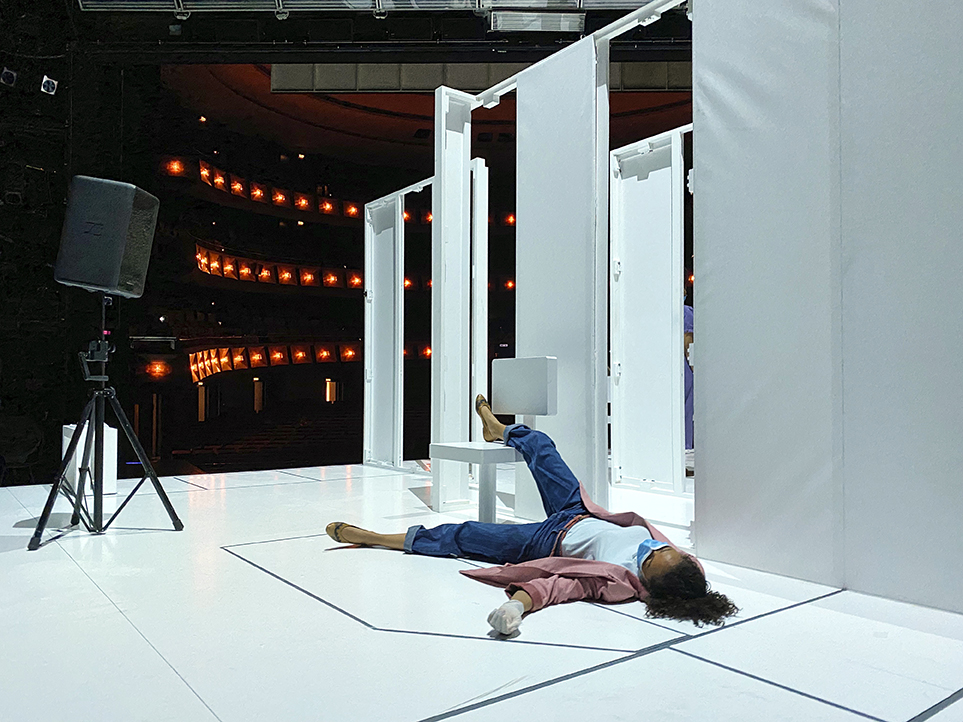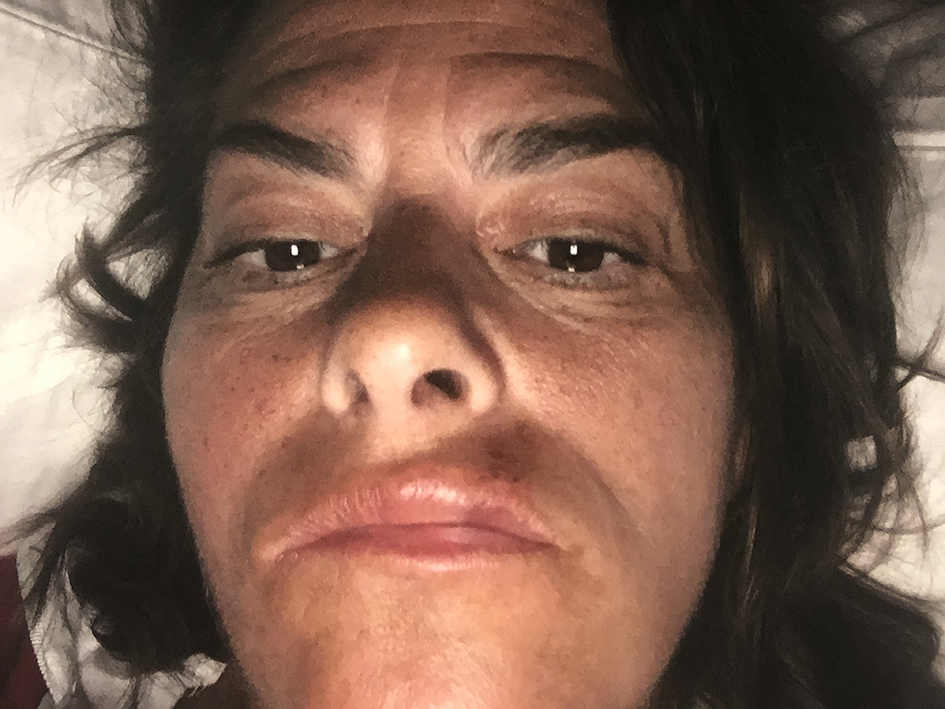 Why is it that so many singers encounter problems with their voices? Simon Le Bon of Duran Duran, Adele, and last week, one of the singers who features on our ‘Spellbinding Voices’ list, Stuart Staples, lead singer of the Tindersticks, announced on the band’s website: “Unfortunately we had to cancel the BBC session tonight as Stuart needs to rest his voice. Sorry!”
Reading our interview with Staples once again it seems almost inevitable that one day he would be confronted with vocal problems. According to ear, nose and throat surgeons most of the problems are caused by a lack of technique. As Staples identified he just started singing to express his inner emotions and poetical visions, and, he did not have professional training from a vocal coach. Only a few singers that feature on the ‘Spellbinding voices’ list have ever undertaken truly technical vocal training. What causes these vocal problem? Is it stress, strain, wrong application, smoking, drugs, drinking, a lack of technique or technical practice, or just simply that the voice is ‘tired’?
Staples, Adele and Le Bon are just a few recent examples, and, there are many more, including Caleb Followil from the Kings of Leon, John Mayer and Justin Young from The Vaccines, who stated on the website of Dutch radio station 3FM: “I have got to have another operation on my voice. I keep getting hemorrhages and I get lumps. It’s really disgusting but my vocal cords can’t shut properly and then I can’t sing.”
The loss of voice can be incredibly emotional for a singer, as exemplified by Adele who wrote an open letter to her fans on her weblog: “Guys, I’m heartbroken and worried to tell you that, yet again, I’m experiencing problems with my voice. I follow all the advice I’m given and stick to regimes, rules and practice to the best of my ability, but it seems to simply not be enough.”
She informs her fans about her vocal problems and explains that the problems started with a bout of flu. Her voice never fully recovered its strength. It just became weaker and weaker, until it eventually broke.
Over-usage and trying to achieve too much volume could lead to voice damage. “It can happen with very powerful singers who are trying to achieve too much volume but without the correct technique,” professor Antony Narula, a consultant ear, nose and throat surgeon, told the ‘Evening Standard’. Therapy for her vocal technique, coaching and complete rest for her voice were recommended by Narula in the same article, otherwise she might risk ‘permanent damage’. It’s the worst case scenario for a singer who earns a living through their voice.
Simon Le Bon is another singer who is hanuted by vocal problems: ‘I’ve had six semi-tones wiped off the top of my range and nobody, myself included, has really been able to explain what has happened. It’s quite difficult not to obsess; it’s very difficult not to worry about it.”
With all this disappointment, for artists, fans or booking agencies, it might become a requirement for talented singers not to trust their natural talents solely, and visit a professional coach from time to time.
One of the singers on our Spellbinding Voices list, Stevie Nicks, benefitted from professional guidance. In an interview with Lawrence Ferber for ‘In News Weekly’ the leading voice of Fleetwood Mac responds to a remark about her voice: “I stopped smoking three packs of Kools a day three years ago. I put the patch on and it totally worked. I also took voice lessons. So all those things put together have just made me a very strong singer now and it’s too bad I didn’t know about that in the early years of Fleetwood Mac when all I got was bad press about my vocal problems. If I had taken voice lessons, I never would have had those vocal problems.”
Since 1997, Nicks has worked with the voice coach, Steve Real, who accompanies her whilst she is on tour. For her ‘In Your Dreams’ tour she put him in the spotlight, singing, ‘Leather & Lace’ with him on stage.
It is remarkable that, for every musical instrument a box or a suitcase is designed to protect it, but for the human voice, an unique instrument, we don’t pay that much care and attention to its protection. Even stranger is that when you consider that a musical instrument, when damaged, can be replaced, whilst a human voice cannot.
Written by Marcel Harlaar and Thierry Somers
Picture: album cover Adele, 21
Reuters UK announced on 9 November that Adele had surgery in Boston to treat a benign polyp on her vocal cords. The singer-songwriter is expected to make a full recovery. We wish Adele all the best.
http://200percentmag.wordpress.com/2011/08/15/spellbinding-voices-part-1/http://200percentmag.wordpress.com/2011/08/18/spellbinding-voices-part-2/
Why is it that so many singers encounter problems with their voices? Simon Le Bon of Duran Duran, Adele, and last week, one of the singers who features on our ‘Spellbinding Voices’ list, Stuart Staples, lead singer of the Tindersticks, announced on the band’s website: “Unfortunately we had to cancel the BBC session tonight as Stuart needs to rest his voice. Sorry!”
Reading our interview with Staples once again it seems almost inevitable that one day he would be confronted with vocal problems. According to ear, nose and throat surgeons most of the problems are caused by a lack of technique. As Staples identified he just started singing to express his inner emotions and poetical visions, and, he did not have professional training from a vocal coach. Only a few singers that feature on the ‘Spellbinding voices’ list have ever undertaken truly technical vocal training. What causes these vocal problem? Is it stress, strain, wrong application, smoking, drugs, drinking, a lack of technique or technical practice, or just simply that the voice is ‘tired’?
Staples, Adele and Le Bon are just a few recent examples, and, there are many more, including Caleb Followil from the Kings of Leon, John Mayer and Justin Young from The Vaccines, who stated on the website of Dutch radio station 3FM: “I have got to have another operation on my voice. I keep getting hemorrhages and I get lumps. It’s really disgusting but my vocal cords can’t shut properly and then I can’t sing.”
The loss of voice can be incredibly emotional for a singer, as exemplified by Adele who wrote an open letter to her fans on her weblog: “Guys, I’m heartbroken and worried to tell you that, yet again, I’m experiencing problems with my voice. I follow all the advice I’m given and stick to regimes, rules and practice to the best of my ability, but it seems to simply not be enough.”
She informs her fans about her vocal problems and explains that the problems started with a bout of flu. Her voice never fully recovered its strength. It just became weaker and weaker, until it eventually broke.
Over-usage and trying to achieve too much volume could lead to voice damage. “It can happen with very powerful singers who are trying to achieve too much volume but without the correct technique,” professor Antony Narula, a consultant ear, nose and throat surgeon, told the ‘Evening Standard’. Therapy for her vocal technique, coaching and complete rest for her voice were recommended by Narula in the same article, otherwise she might risk ‘permanent damage’. It’s the worst case scenario for a singer who earns a living through their voice.
Simon Le Bon is another singer who is hanuted by vocal problems: ‘I’ve had six semi-tones wiped off the top of my range and nobody, myself included, has really been able to explain what has happened. It’s quite difficult not to obsess; it’s very difficult not to worry about it.”
With all this disappointment, for artists, fans or booking agencies, it might become a requirement for talented singers not to trust their natural talents solely, and visit a professional coach from time to time.
One of the singers on our Spellbinding Voices list, Stevie Nicks, benefitted from professional guidance. In an interview with Lawrence Ferber for ‘In News Weekly’ the leading voice of Fleetwood Mac responds to a remark about her voice: “I stopped smoking three packs of Kools a day three years ago. I put the patch on and it totally worked. I also took voice lessons. So all those things put together have just made me a very strong singer now and it’s too bad I didn’t know about that in the early years of Fleetwood Mac when all I got was bad press about my vocal problems. If I had taken voice lessons, I never would have had those vocal problems.”
Since 1997, Nicks has worked with the voice coach, Steve Real, who accompanies her whilst she is on tour. For her ‘In Your Dreams’ tour she put him in the spotlight, singing, ‘Leather & Lace’ with him on stage.
It is remarkable that, for every musical instrument a box or a suitcase is designed to protect it, but for the human voice, an unique instrument, we don’t pay that much care and attention to its protection. Even stranger is that when you consider that a musical instrument, when damaged, can be replaced, whilst a human voice cannot.
Written by Marcel Harlaar and Thierry Somers
Picture: album cover Adele, 21
Reuters UK announced on 9 November that Adele had surgery in Boston to treat a benign polyp on her vocal cords. The singer-songwriter is expected to make a full recovery. We wish Adele all the best.
http://200percentmag.wordpress.com/2011/08/15/spellbinding-voices-part-1/http://200percentmag.wordpress.com/2011/08/18/spellbinding-voices-part-2/
 Why is it that so many singers encounter problems with their voices? Simon Le Bon of Duran Duran, Adele, and last week, one of the singers who features on our ‘Spellbinding Voices’ list, Stuart Staples, lead singer of the Tindersticks, announced on the band’s website: “Unfortunately we had to cancel the BBC session tonight as Stuart needs to rest his voice. Sorry!”
Reading our interview with Staples once again it seems almost inevitable that one day he would be confronted with vocal problems. According to ear, nose and throat surgeons most of the problems are caused by a lack of technique. As Staples identified he just started singing to express his inner emotions and poetical visions, and, he did not have professional training from a vocal coach. Only a few singers that feature on the ‘Spellbinding voices’ list have ever undertaken truly technical vocal training. What causes these vocal problem? Is it stress, strain, wrong application, smoking, drugs, drinking, a lack of technique or technical practice, or just simply that the voice is ‘tired’?
Staples, Adele and Le Bon are just a few recent examples, and, there are many more, including Caleb Followil from the Kings of Leon, John Mayer and Justin Young from The Vaccines, who stated on the website of Dutch radio station 3FM: “I have got to have another operation on my voice. I keep getting hemorrhages and I get lumps. It’s really disgusting but my vocal cords can’t shut properly and then I can’t sing.”
The loss of voice can be incredibly emotional for a singer, as exemplified by Adele who wrote an open letter to her fans on her weblog: “Guys, I’m heartbroken and worried to tell you that, yet again, I’m experiencing problems with my voice. I follow all the advice I’m given and stick to regimes, rules and practice to the best of my ability, but it seems to simply not be enough.”
She informs her fans about her vocal problems and explains that the problems started with a bout of flu. Her voice never fully recovered its strength. It just became weaker and weaker, until it eventually broke.
Over-usage and trying to achieve too much volume could lead to voice damage. “It can happen with very powerful singers who are trying to achieve too much volume but without the correct technique,” professor Antony Narula, a consultant ear, nose and throat surgeon, told the ‘Evening Standard’. Therapy for her vocal technique, coaching and complete rest for her voice were recommended by Narula in the same article, otherwise she might risk ‘permanent damage’. It’s the worst case scenario for a singer who earns a living through their voice.
Simon Le Bon is another singer who is hanuted by vocal problems: ‘I’ve had six semi-tones wiped off the top of my range and nobody, myself included, has really been able to explain what has happened. It’s quite difficult not to obsess; it’s very difficult not to worry about it.”
With all this disappointment, for artists, fans or booking agencies, it might become a requirement for talented singers not to trust their natural talents solely, and visit a professional coach from time to time.
One of the singers on our Spellbinding Voices list, Stevie Nicks, benefitted from professional guidance. In an interview with Lawrence Ferber for ‘In News Weekly’ the leading voice of Fleetwood Mac responds to a remark about her voice: “I stopped smoking three packs of Kools a day three years ago. I put the patch on and it totally worked. I also took voice lessons. So all those things put together have just made me a very strong singer now and it’s too bad I didn’t know about that in the early years of Fleetwood Mac when all I got was bad press about my vocal problems. If I had taken voice lessons, I never would have had those vocal problems.”
Since 1997, Nicks has worked with the voice coach, Steve Real, who accompanies her whilst she is on tour. For her ‘In Your Dreams’ tour she put him in the spotlight, singing, ‘Leather & Lace’ with him on stage.
It is remarkable that, for every musical instrument a box or a suitcase is designed to protect it, but for the human voice, an unique instrument, we don’t pay that much care and attention to its protection. Even stranger is that when you consider that a musical instrument, when damaged, can be replaced, whilst a human voice cannot.
Written by Marcel Harlaar and Thierry Somers
Picture: album cover Adele, 21
Reuters UK announced on 9 November that Adele had surgery in Boston to treat a benign polyp on her vocal cords. The singer-songwriter is expected to make a full recovery. We wish Adele all the best.
http://200percentmag.wordpress.com/2011/08/15/spellbinding-voices-part-1/http://200percentmag.wordpress.com/2011/08/18/spellbinding-voices-part-2/
Why is it that so many singers encounter problems with their voices? Simon Le Bon of Duran Duran, Adele, and last week, one of the singers who features on our ‘Spellbinding Voices’ list, Stuart Staples, lead singer of the Tindersticks, announced on the band’s website: “Unfortunately we had to cancel the BBC session tonight as Stuart needs to rest his voice. Sorry!”
Reading our interview with Staples once again it seems almost inevitable that one day he would be confronted with vocal problems. According to ear, nose and throat surgeons most of the problems are caused by a lack of technique. As Staples identified he just started singing to express his inner emotions and poetical visions, and, he did not have professional training from a vocal coach. Only a few singers that feature on the ‘Spellbinding voices’ list have ever undertaken truly technical vocal training. What causes these vocal problem? Is it stress, strain, wrong application, smoking, drugs, drinking, a lack of technique or technical practice, or just simply that the voice is ‘tired’?
Staples, Adele and Le Bon are just a few recent examples, and, there are many more, including Caleb Followil from the Kings of Leon, John Mayer and Justin Young from The Vaccines, who stated on the website of Dutch radio station 3FM: “I have got to have another operation on my voice. I keep getting hemorrhages and I get lumps. It’s really disgusting but my vocal cords can’t shut properly and then I can’t sing.”
The loss of voice can be incredibly emotional for a singer, as exemplified by Adele who wrote an open letter to her fans on her weblog: “Guys, I’m heartbroken and worried to tell you that, yet again, I’m experiencing problems with my voice. I follow all the advice I’m given and stick to regimes, rules and practice to the best of my ability, but it seems to simply not be enough.”
She informs her fans about her vocal problems and explains that the problems started with a bout of flu. Her voice never fully recovered its strength. It just became weaker and weaker, until it eventually broke.
Over-usage and trying to achieve too much volume could lead to voice damage. “It can happen with very powerful singers who are trying to achieve too much volume but without the correct technique,” professor Antony Narula, a consultant ear, nose and throat surgeon, told the ‘Evening Standard’. Therapy for her vocal technique, coaching and complete rest for her voice were recommended by Narula in the same article, otherwise she might risk ‘permanent damage’. It’s the worst case scenario for a singer who earns a living through their voice.
Simon Le Bon is another singer who is hanuted by vocal problems: ‘I’ve had six semi-tones wiped off the top of my range and nobody, myself included, has really been able to explain what has happened. It’s quite difficult not to obsess; it’s very difficult not to worry about it.”
With all this disappointment, for artists, fans or booking agencies, it might become a requirement for talented singers not to trust their natural talents solely, and visit a professional coach from time to time.
One of the singers on our Spellbinding Voices list, Stevie Nicks, benefitted from professional guidance. In an interview with Lawrence Ferber for ‘In News Weekly’ the leading voice of Fleetwood Mac responds to a remark about her voice: “I stopped smoking three packs of Kools a day three years ago. I put the patch on and it totally worked. I also took voice lessons. So all those things put together have just made me a very strong singer now and it’s too bad I didn’t know about that in the early years of Fleetwood Mac when all I got was bad press about my vocal problems. If I had taken voice lessons, I never would have had those vocal problems.”
Since 1997, Nicks has worked with the voice coach, Steve Real, who accompanies her whilst she is on tour. For her ‘In Your Dreams’ tour she put him in the spotlight, singing, ‘Leather & Lace’ with him on stage.
It is remarkable that, for every musical instrument a box or a suitcase is designed to protect it, but for the human voice, an unique instrument, we don’t pay that much care and attention to its protection. Even stranger is that when you consider that a musical instrument, when damaged, can be replaced, whilst a human voice cannot.
Written by Marcel Harlaar and Thierry Somers
Picture: album cover Adele, 21
Reuters UK announced on 9 November that Adele had surgery in Boston to treat a benign polyp on her vocal cords. The singer-songwriter is expected to make a full recovery. We wish Adele all the best.
http://200percentmag.wordpress.com/2011/08/15/spellbinding-voices-part-1/http://200percentmag.wordpress.com/2011/08/18/spellbinding-voices-part-2/










